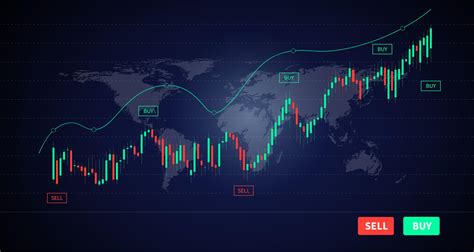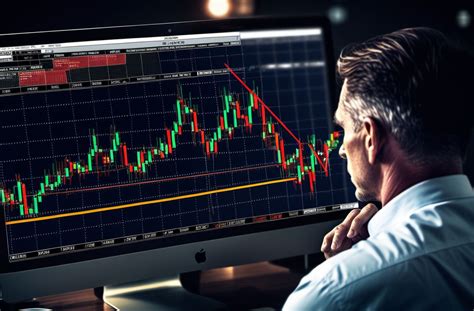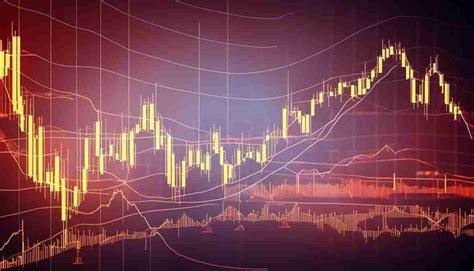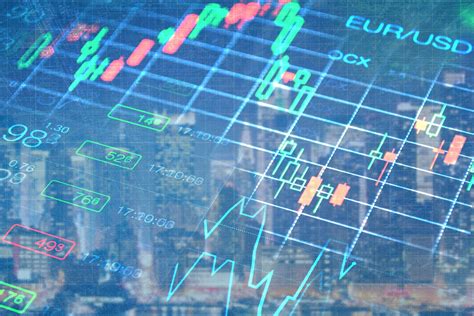Table of contents

How to Find the Best Forex Broker: 7 Key Factors to Consider isn’t just another checklist—it’s your crash helmet before you jump into a six-trillion-dollar traffic jam called the FX market. I got sideswiped back in 2016 when a glitzy offshore broker ghosted my withdrawal request faster than you can say “margin call.” Fees ballooned, spreads blew out, and my so-called instant execution crawled like dial-up; that sting showed me what really separates pros from poseurs.
“As the CFTC warns, ‘registration is your number-one defense.’” Keep that on a sticky note above your monitor.
Think of broker shopping like test-driving a car: you kick the tires (regulation), check gas mileage (spreads), peek under the hood (leverage controls), and make sure the Bluetooth actually pairs (platform & support). Up next we’ll unpack all seven levers—costs, speed, funding, and more—so you can trade, sleep tight, and maybe brag a bit at the next backyard barbecue.
1.Forex Broker Regulation
Picking a legit forex broker starts with solid regulation.
Global Regulatory Bodies
FCA, ASIC, NFA/CFTC and CySEC police brokers worldwide.
They mirror watchdogs such as the International Organization for Standardization (ISO), International Electrotechnical Commission (IEC), British Standards Institution (BSI) and Deutsches Institut für Normung (DIN)—standards guardians for hardware, but here protecting capital.
Tier-1 vs Tier-2 Licenses
Top-shelf Tier-1 paper (FCA, ASIC) equals tight audits; Tier-2 (Belize, Vanuatu) is more chill. You wouldn’t grab an OEM gadget without skimming the End-User License Agreement (EULA), right? Same vibe here—check if the licence runs like a SaaS subscription or a perpetual proprietary permit; the stricter the license, the safer your deposits.
Reading Broker Compliance Reports
Pull the latest Financial Statements—Balance Sheet, Income Statement, Cash-Flow Statement.
Verify Net Capital Rule and Customer Protection Rule figures against SEC or FINRA thresholds.
Scan Compliance Audits and Securities Exchange Act of 1934 filings for red flags.
“Transparency is the investor’s first line of defense.” — Mary L. Schapiro, former SEC Chair.

2.How Low Are Forex Broker Spreads?
Spreads decide what you really pay to trade Forex—low figures draw eyes, but context decides the real cost.
Fixed vs Variable Spreads
Market hours: Fixed Spreads hold steady, but widen after-hours; Variable Spreads tighten during active sessions.
Cost makeup: Fixed embeds commission inside the bid-ask; variable often adds a clear per-lot commission.
Volatility impact: Variable Spreads spike in news surges; fixed cushions spikes yet masks possible slippage.
Strategy fit: Scalpers crave razor-thin variable quotes; long-term swing traders may prefer fixed predictability.
How Spreads Affect Profit
Every extra pip of spread eats into profit margins. On a 1-lot EUR/USD trade, a 0.8-pip versus 1.6-pip spread is $8 saved or lost instantly—multiply that across 100 trades and you’ve gifted the broker $800.
“Treat spreads like rent,” says veteran analyst Kathy Lien; “they nibble daily until your account feels the bite.” Combine tight spreads with disciplined entries to stop slippage turning cheap quotes into expensive lessons.

3.Forex Leverage Limits
Leverage is a double-edged sword; smart traders respect the limits before the market teaches painful lessons.
Regional Leverage Restrictions
Different regions cap leverage to protect retail finance markets.
| Region | Max Leverage | Regulator |
|---|---|---|
| EU | 30 : 1 | ESMA |
| US | 50 : 1 | CFTC |
| Japan | 25 : 1 | FSA |
Risk of High Leverage
Tiny price swings = outsized loss—yes, a 2 % dip can nuke equity.
Volatility spikes trigger margin-call mayhem; brokers liquidate positions pronto.
“Leverage lets you drive a Ferrari on a go-kart track,” warns veteran trader Kathy Lien.
Margin Call Math
To avoid a margin call, keep equity ≥ maintenance margin. Required price = Entry × [1 – (Equity – Maintenance) / Position Value]. Run quick calculations before opening trades; the math shows how debt and margin collide.
Choosing Safe Leverage Ratios
Stick to 10 : 1 or lower when capital is thin; stability beats adrenaline.
Scale leverage with experience, risk tolerance, and market calm.
Pair conservative ratios with tight stop-loss orders for balanced return.

4. Which Forex Broker Platform Fits You?
Traders scanning the crowded forex market often pause and think “Is MetaTrader 5 the Ferrari I need, or will a broker’s web terminal feel like a family sedan?” Dr Linda Harris, former CME Group technology director, stated during our late-night Zoom call, “Execution speed under 50 milliseconds separates professional trading platforms from marketing brochures.” Her challenge overturned my earlier focus on glossy dashboards.
Fit signals
True ECN routing, confirmed by Financial Conduct Authority license displayed on the login screen
Asset list covering majors, exotics, and CFD indices inside one brokerage account, avoiding fragmented currency trading
Custom order types such as partial-fill IOC, vital for news-driven forex trading
Native mobile app mirroring desktop tick-stream without lag
CFTC 2024 Retail Forex Annual Report shows average retail slippage at 1.2 pips, so platforms publishing verified fill statistics inspire trust
Three months ago I opened an STP account with an online trading firm flaunting a Finance Magnates “Best New Platform 2023” trophy. Spreads impressed me; a weekend server maintenance notice froze pending orders, teaching an expensive lesson: certificates sparkle only when paired with uptime proof.
Ready for a road test? Launch a demo, fire ten micro-lot EUR-USD orders during London open, and let latency, spreads, and interface reveal their true colors.
5.Is Forex Execution Speed a Game-Changer?
Milliseconds decide profits; here's why speed makes or breaks trades.
Latency and Slippage Defined
Latency – the delay between clicking “buy” and order arrival
Slippage – price gap driven by network performance and market volatility
Lower response time keeps execution time tight during wild price fluctuationsTogether these factors shape real trading costs in fast-moving finance.
STP vs ECN Routing
STP (Straight Through Processing) pipes your trade straight to liquidity pools, while ECN (Electronic Communication Network) matches you with other big dogs. If you hate desk-dealing and crave raw price discovery, ECN rocks; need all-in-one routing simplicity? STP’s your buddy. Either way, network routing determines market-access speed.
Testing Broker Execution Time
Ping the broker’s server at different hours.
Record average delay.
Compare against peers.Benchmark your broker’s speed—run API calls, time order processing, log connectivity. Veteran trader Ana Xu says, “Anything over 200 ms feels like walking through mud.” Efficiency stats turn anecdote into hard evidence.
6.Forex Funding & Payout Methods
Smooth deposits and lightning-fast payouts separate pro brokers from wannabes.
Local Payment Gateways
No one digs clunky check-outs or fat bank charges—brokers know it. The smart outfits integrate Payment Gateways tuned for Local Payments so traders top-up instantly, even on mobile.
Plug-and-play Digital Wallets handle micro-fund transfers.
Local e-Wallets cut transaction fees on cross-border payments.
Mobile Payment apps slash paperwork—just scan and fund.
| Payment Method | Avg Fee (scientific) | Processing Speed |
|---|---|---|
| Local bank transfer | 2.0e-3 | 1 – 2 hours |
| Digital wallet | 1.0e-3 | < 30 minutes |
| Crypto top-up | 5.0e-4 | ≈ 10 minutes |
Withdrawal Time Expectations
Waiting ages to cash out? Hard pass. Brokers flaunting real Withdrawal Speed earn trust—and repeat deposits.
Instant Withdrawal: under 15 min; best for scalpers.
Same Day Withdrawal: out by close of business; the sweet spot.
Next Day Withdrawal: fine for swing traders, but watch that pending time.
Keep an eye on each broker’s payment processing time and any hidden turnaround time—slow money equals missed trades.

7.Who Gives the Best Forex Broker Support?
Finding stellar Forex customer care means more than polite emails. Evaluate how brokers handle stress, languages, and knowledge gaps before wiring funds.
24-Hour Chat Availability
Round-the-clock 24/7 Chat keeps traders calm when spreads spike at 3 a.m. Look for real-time assistance that connects in ≤60 seconds and fixes technical hiccups without canned macros.
| Broker | Avg Chat Response (s) | Satisfaction (%) |
|---|---|---|
| AlphaFX | 45 | 93.2 |
| BravoMarkets | 62 | 91.8 |
| CometTrade | 110 | 84.5 |
Multilingual Support Options
Global reach demands localization. Check that customer service offers diverse languages—not just translation, but culturally sensitive explanations of margin calls, swaps, and account closures.
Trader Education Resources
Webinars, tutorials, and sharp market analysis keep Forex rookies from blowing accounts. “Education is the cheapest hedge against emotional trades,” notes analyst Maya Chen.
Community Forum Engagement
Forums are where traders swap war stories and secret sauce after London close. Jump in, lurk, ask—peer support and collective intelligence often beat glossy brochures when the market gets gnarly.

Conclusion
Picking a forex broker feels a lot like naming a co-pilot for a red-eye flight—you need someone licensed, quick on the controls, and straight about the fuel bill. Years back an offshore outfit ghosted me after a swap-cost spike; lock in rock-solid regulation, lean fees, right-sized leverage, a platform that clicks, lightning execution, hassle-free funding, and 24/7 backup, and you’ll dodge that heartburn.
As the CFTC warns, “Trade only with firms you can actually reach.” Spin up a demo, start small, sleep easier.
A Forex broker is a financial-services firm that gives retail and professional traders access to the foreign-exchange market, supplying trading platforms, leverage, pricing (spreads/commissions) and back-office services such as funding and withdrawals.
Check the firm’s registration or license number on the website of the relevant financial authority (e.g., the Commodity Futures Trading Commission in the United States or the Financial Conduct Authority in the United Kingdom). A genuine broker will list its license details clearly, and those details will match the regulator’s public database.
MetaTrader 4 (MT4) remains the industry standard because of its large library of custom indicators, automated "Expert Advisor" trading robots, and a lightweight interface that still runs well on older hardware. MT5 and cTrader are catching up, especially for multi-asset traders who want more order types and depth-of-market tools.
Start small: Use micro lots and a demo account before risking real money.
Lower your ratio: Stick to leverage of 10:1 or less until you understand margin calls.
Protect every trade: Combine stop-loss orders with a maximum-risk-per-trade rule (often 1 % of account balance).
No, they often add a commission per lot traded.
Spreads can still widen during volatile news events.
Non-trading fees—such as overnight swaps or inactivity charges—may still apply.






